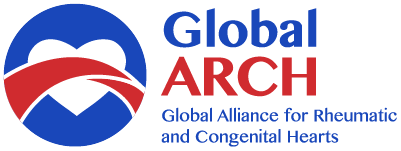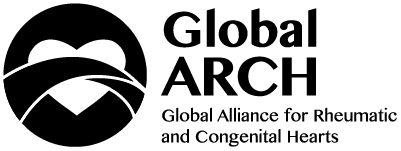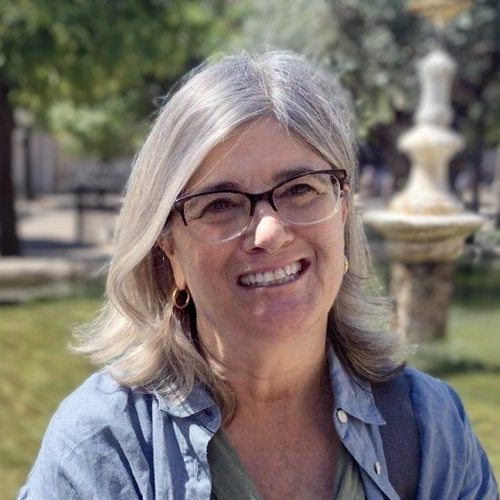
Taking action, lifelong care, and mental health key messages at 2024 World Health Assembly
Global ARCH played a key role at the World Health Assembly Side Event in Geneva, collaborating with allied organizations to present “Congenital Anomalies and Universal Health: Leaving No One Behind”. Bistra Zheleva, Global ARCH board member, and Vice President of Global Strategy and Advocacy at Children’s HeartLink, introduced the side event saying, “We are here on the sidelines of a very important meeting where many different topics are being discussed, including universal health coverage. Congenital anomalies are missing from the agenda. This is important because there is increasing evidence that congenital anomalies are becoming a major contributor to childhood mortality. Without addressing this, targets set for reducing childhood mortality will likely be missed.”
“With greater focus and investment, we can help give children born with a serious condition a healthier life, no matter where they are born.”
– Dr. Tedros Adhanom Ghebreyesus, Director-General of the World Health Organization
During the WHA Side Event on May 27th, 2024, Global ARCH, along with Children’s HeartLink, Operation Smile, MiracleFeet, International Federation for Spina Bifida and Hydrocephalus, Jhpiego, and the Global Alliance for Surgical, Obstetric, Trauma, and Anaesthesia Care – G4 Alliance, discussed the resources necessary to serve children born with congenital anomalies around the globe in need of lifelong care, and how to advocate with policymakers for their inclusion in the universal health coverage agenda. The audience included policy makers; leading global health organization representatives, thought leaders, and advocates; governmental and private donors; and the media.
The key policy asks were:
• To ensure the needs of people with congenital anomalies are included in universal health programs
• To raise awareness of the needs, rights, and dignity of people with congenital anomalies of all ages are in line with the principles of the UN Convention on the Rights of Persons with Disabilities
• To increase investments for the prevention and care for persons with congenital anomalies, throughout the entire lifespan, including transition to adulthood
• To actively involve and consult persons with congenital anomalies and their representative organizations in policy making relevant to their lives, needs and realization of their human rights
• To implement policies, programs and awareness campaigns to address the barriers which persons with congenital anomalies and their families encounter regarding accessing health care, whether they are attitudinal, communication, physical, policy, programmatic, transportation or social.
Dr. Anshu Banerjee, Director for the Department of Maternal, Newborn, Child and Adolescent Health and Ageing at the World Health Organization (WHO), showed that the proportion of mortality due to birth defects is close to 30%, with 90% in low-to-middle-income countries for those under 5 years of age. He stressed the importance of creating programs that can be implemented everywhere within countries and linked across healthcare systems.
The panel of patients and advocates was moderated by Global ARCH president Amy Verstappen, who spoke briefly about her own journey with complex congenital heart disease, saying “It is so important to ensure that every person like me achieves what the WHO promises each of us, which is that we will achieve the highest achievable state of health throughout our lifespan.”
Laura Alvarez, born with cleft palate and now a volunteer with Operation Smile stressed the importance of using the right terms – avoiding “defects” – and to think of people with congenital anomalies as if they were your own child, where you would want the best for them. Laura also spoke about the important of psychological care so people with congenital anomalies can have a healthy and fulfilling life with dignity, and why having a plan, like the Mental Health Action plan of 2013, is so important.
Joumana Atallah, founder of Brave Heart Fund in Lebanon gave an impassioned talk, saying “We want our children to live, so we’re going to get it done. We just have to do it.” She spoke about the necessity of collaborations between the public, private, philanthropists, and patients, so that patients receive the highest quality care.
The next panel featured representative from the International Federation for Spina Bifida and Hydrocephalus (IFSBH), Operation Smile, MiracleFeet, International Federation for Spina Bifida and Hydrocephalus, Jhpiego, and the Global Alliance for Surgical, Obstetric, Trauma, and Anaesthesia Care – G4 Alliance.
Sylvia Roozen, Secretary General at the International Federation for Spina Bifida and Hydrocephalus (IFSBH), said that society can play the part of “honest broker” between private, public and civic partnerships to bring countries and communities together to ensure the needs of the patients and their families are met. She stressed that while taking a primary prevention approach is important, we must not forget about the people already living with disability.
Ruben Ayala, Chief of Policy and Advocacy for Operation Smile, addressed the health challenges to support successful surgery, such as malnutrition, speech therapy, and mental health support to help people cope with their congenital anomaly. “The continuum is what gives people the opportunity to live a long and happy life.”
Amy Verstappen, Global ARCH President stressed the importance of lifelong care, saying that developed countries made an essential mistake that can be avoided in countries that are just developing treatment pathways for congenital anomalies: “The great new is that so many children now survive but the bad news is that it’s all a chronic disease. High-income countries did not prepare for this at all with congenital heart disease patients, so now we’re playing catch-up.”
Natalie Shenemen, Advocacy Manager, G4 alliance, a 70-member advocacy coalition to advocate for neglected surgical patients, praised their ability to collaborate around agendas to strengthen healthcare systems. She said that a Coalition can bring together messages, such as the need for mental health care to create an agenda to move healthcare forward.
Dr. Sreehari M Nair, former Child Health and RBSK State Nodal Officer, Department of Health Kerala spoke about the congenital anomalies program to reduce the infant mortality rate in Kerala, India. Since 2022, the rate of infant mortality in India has declined once they focussed on congenital heart disease, the major contributor. They improved their newborn screening and referral pathways for surgery and follow-up, including neurodevelopmental outcomes and quality of life. This program is one example of how the government used the data to make important decisions, along with the input of civil society partners.
Salimah Walani, Global Policy & Advocacy Advisor (USA), Miracle Feet, and panel moderator, closed the event, saying “I had no idea that one day we’ll all be sitting here in Geneva, convening and talking about this very important issue. So let me first and foremost thank our patient representatives. Your experiences and your stories inspire us to do, to dare to do more. And we want to make sure that no babies are left without care…Babies are not heads, feet, hearts. They are babies, and they need to be taken care of.”




